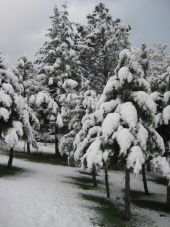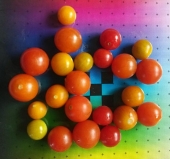



Hugo Morvan wrote:@Steve Clausen I don't know if insects eat eleagnus species. The birds sure do, so somehow it will profit the local flora by droppings and soil building. There didn't grow much in these dunes traditionally but a grass that did so poorly the government had to come in and replant it every so often or wind erosion would blow away so many sand that the dunes disappeared, creating a weak spot. The high tide and storm combined used to create sea breakthroughs creating small brakkish lakes land inwards. Precious habitat that now is disappearing. Human activity and natural disturbance create real chances for niche creating. Conservatists try to keep a naturally dynamic system stable. I'm old enough to know that once endangered species can make a huge comeback, Storks and Cormorants and foxes come to mind. Many species find their way into cities now. They overcome some fear and profit of a once unobtainable rich habitat and thrive.
I agree pesticides do a lot of damage. I suspect it's killing of soil life and bacteria so there simply is no food for life up the foodchain which is them. I try to eat as little of them as possible and i am actively creating a habitat that is biodiverse and have observed how planting biodivese creates a stabalizing insect influx and i eat eat of that landscape. But the general insect decline there is not a lot i can do to influence that. People are poorer every day and want cheap food, they want to keep unaware that spray load is getting absolutely ridiculous.
I live on very poor granite soils and hope to find inside this diverse rewilded Eleagnus population some genetic diversity that would cost thousands of dollars/euro's to obtain. The crosses nature decided to drop in the dunes would take years to achieve.
I visited a website and know that government is fully aware of this infestation, they don't move a finger. Maybe they like the soil building qualities and are the anti-erosion qualities of this plague and are studying this situation. Maybe they're lacking the resources to do so, they're not open about the plan and if there even is a plan. I'm nothing but a passionate permaculturist who's interested in the forest building dynamic these infestations seem to bring along. I see Elder popping up where there was none, i see annuals that grow in winter, i see some oaks species appearing i see other local berry carrying shrubs appearing. I'm far from convinved that this evolution is a net negative for insect populations in general in the long run. And even less convinced that fighting it by removing them is an effective way to change the situation, which it has proven many times over they're not capable of effectively removing them once established. They've poisoned whole areas in a fight against the Rosa Rugosa and mechanically removed soil and sived through it for seeds, they've spend millions and still lose that fight that maybe shouldn't have been fought in the first place.
Nitrogen fixing qualities are mostly seen as a negative while it's proven to be forest forming which is nothing but a net carbon sink which we try to create artificially. It doesn't make sense to me at all. Why do conservationist feel we can't create forestlike situations by making use of invasive shrubs?


Susan Boyce wrote:Why do you like living or being in the woods?
I find it peaceful like coming home again.




